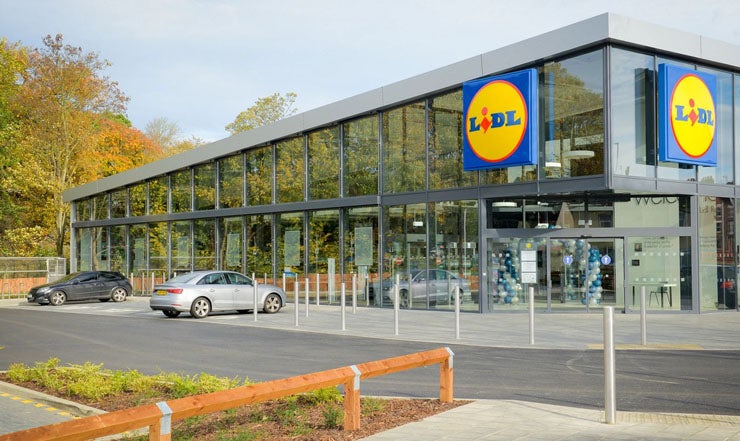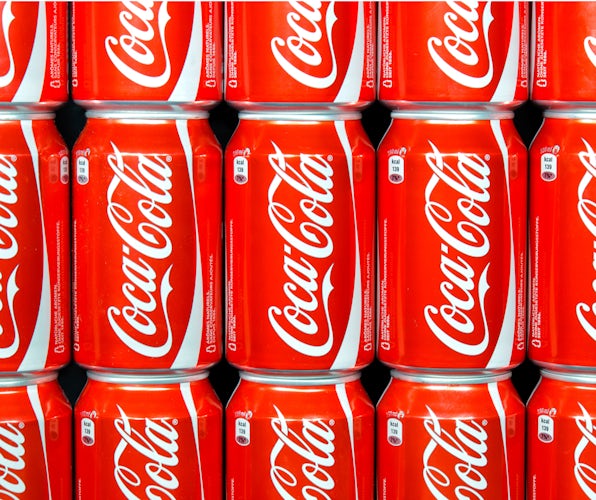Nokia, Ikea & Snapchat: 5 things that mattered this week and why
A round-up of the week’s most important marketing news including advertisers getting fed up of swearing on Mumsnet, Snapchat stealing Facebook users and Lidl overtaking Waitrose.
Ikea says it reached 151 million people with Game of Thrones campaign
Ikea has been talking up the power of reactive advertising after its campaign reacting to news the creators of Game of Thrones use the Swedish retailer’s rugs (pictured) to create Jon Snow’s outfits went viral.
Subsequently, Ikea posted a do-it-yourself guide on its Facebook page that gave shoppers all the steps needed to make their own winter-warming Jon Snow threads.
The reactive campaign reached 151 million internet users, who have posted 83,500 messages in reaction, while delivering 778 million global impressions. This has also had a halo effect on the product itself, with a 775% rise in searches for the SKOLD rug and a “good impact” on sales, according to Ikea’s UK marketing director Laurent Tiersen.
This news matters because it shows marketing doesn’t always need blockbuster budgets to achieve major traction. Sometimes, simply reacting can go a long, long way. Or as Tiersen puts it: “A marketing strategy should never be fixed. New opportunities arise every day and you need to make the most of them.”
READ MORE: Ikea, Game of Thrones and the power of ‘reactionary’ marketing
Can Nokia catch up with Apple and Samsung?

Nokia once dominated the mobile phone market but with the advent of the smartphone it was quickly usurped by first Apple and then Samsung. But the mobile brand’s new owner HMD Global thinks it stands a chance of competing once again. Speaking this week around the launch of Nokia’s smartphone comeback (via the Nokia 8 handset), HMD’s CMO Pekka Rantala told Marketing Week: “We don’t think it will take 10 years to become one of the top players. It will take us a lot less time [than that] to challenge Apple and Samsung.”
And even if Nokia will always primarily be known for retro Snake among certain consumers, Rantala insists the brand’s comeback won’t be built solely around nostalgia. Instead, he says Nokia will tap into an appetite among the public for an alternative to the iPhone and Galaxy ranges.
“We don’t want to join those smartphone players who just do boring advertising campaigns. The people are bored because marketing wise it is just more of the same right now from celebrity endorsements to focusing on tech and spec.”
But the market is littered with brands that have tried and failed to make a comeback – think Motorola, HTC, BlackBerry. Rantala thinks Nokia could be the brand to do it. It will be a lot less than 10 years before we find out if that’s true.
READ MORE: Nokia: It will take us less than 10 years to catch Apple and Samsung
Lidl leapfrogs Waitrose as discounters continue to thrive

The UK’s love for the discounters shows no signs of fading, with Lidl this week becoming the nation’s seventh biggest supermarket.
Lidl reached a new market share high of 5.2% as sales rose an impressive 18.9% in the 12 weeks to 13 August, according to the latest data from Kantar Worldpanel. This means Lidl finally leapfrogged Waitrose; something larger rival Aldi achieved back in 2015.
It was also good news for Aldi. Over the same period, its sales rose 17.2%, giving it a 7% market share. Aldi and Lidl’s rise meant that all the big four supermarkets lost market share.
There has been a lot of talk recently about the discounters slowing down and shoppers stopping their flirtation by returning to Tesco. However, this news appears to suggest the runaway train that is Aldi and Lidl shows no signs of hitting the breaks.
READ MORE: Lidl overtakes Waitrose to become the UK’s seventh biggest supermarket
New study provides some cheer for Snapchat

With analysts underwhelmed by its IPO and many of its users reportedly flocking to Instagram, Snapchat hasn’t had the easiest 2017. But a new study will finally give it something to smile about.
Among those aged 12 to 17 and 18 to 24, Facebook’s user growth will fall by 2.8% and 3.1% respectively in 2017, according to eMarketer’s latest forecast of the UK’s social network users. In comparison, Snapchat will grow users among the important 18- to 24-year-old group by 19.2% – a sign it is making gains.
In total, 16.7 million people in the UK will use Instagram a month this year, an increase of 34.8% over 2016. Snapchat won’t be far behind, with 21.1% of the population—or 14 million people—logging on at least once per month; representing an increase of 20.2% year on year.
“We see teens and tweens migrating to Snapchat and Instagram. Both platforms have found success with this demographic since they are more aligned with how they communicate—that is, using visual content,” claims eMarketer senior forecasting analyst Oscar Orozco.
“Outside of those who have already left, teens and tweens remaining on Facebook seem to be less engaged, logging in less frequently and spending less time on the platform.” Whether marketers actually agree with all this is another matter entirely.
READ MORE: Facebook’s appeal fades as younger users move to Instagram and Snapchat
Brands reconsider Mumsnet after ads appear next to swear words

It emerged this week that major advertisers such as Bulgari, the National Trust and price comparison site Confused.com are among the big brands reconsidering their presence on Mumsnet.
According to a report in The Times, they are upset because their ads are appearing next to expletives on the website and forum that’s dedicated to British mothers.
With many brands already forgiving Google for putting their ads next to extremist content on YouTube, the move seems a little over the top, according to our very own Mark Ritson.
“I can see why a majestic luxury brand like Bulgari might flinch if an ad for its iconic fragrance Jasmin Noir appears alongside a post from a mum who wants to put up ‘No wanking’ signs above her toilet to stop her teenage progeny from masturbating repeatedly in the downstairs loo,” Ritson observed in his weekly column.
“But, that said, I’m not even sure that Mumsnet poses any brand risk. More likely, the recent brand safety saga has just got marketing directors worried – or ‘shitting their pants’ as a Mumsnet user might put it – and made them overly sensitive to any digital media transgression.” Marketers, he argues, should instead just accept that that’s just how real people talk.
This story is interesting because it suggests marketers are now hyper-sensitive – probably because of the YouTube scandal – about where there advertising is appearing. Boycotting Mumsnet, however, might be a little heavy handed.
READ MORE: Mark Ritson: Brands boycotting Mumsnet have a deluded view of consumers







